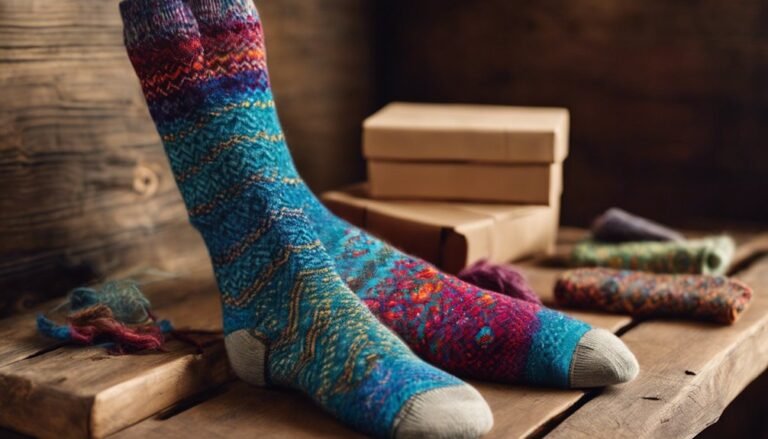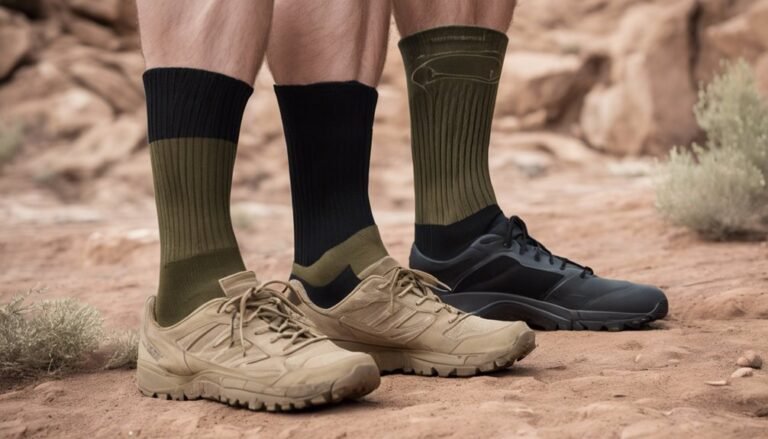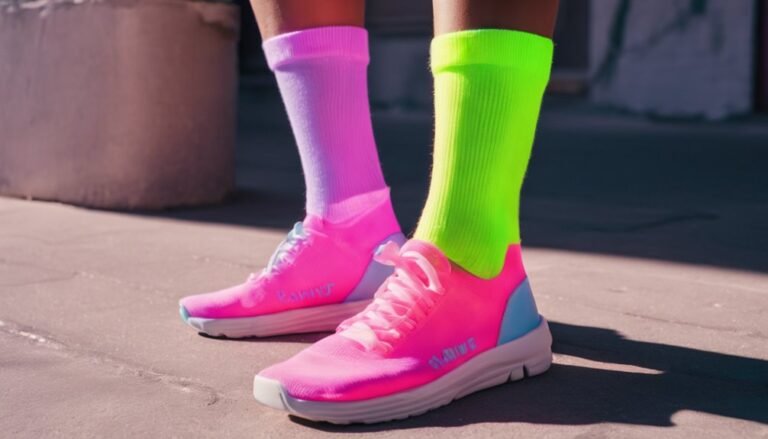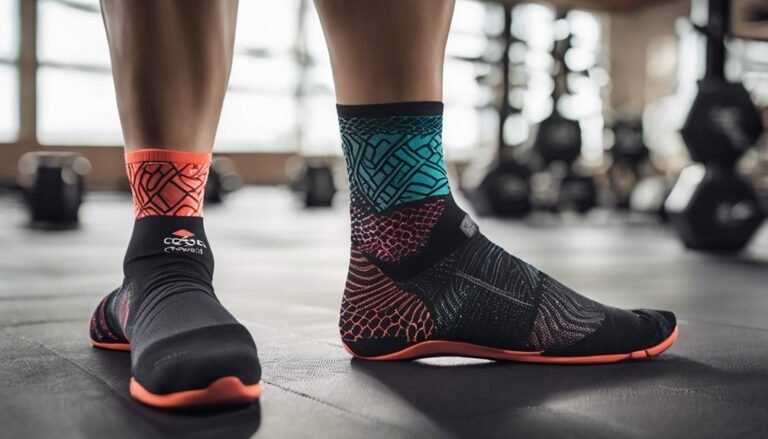Merino Wool Vs Alpaca Socks: The Ultimate Comfort Showdown
Choosing between Merino wool and Alpaca socks can be tricky. Both offer unique benefits and qualities.
Comparisons help us make informed decisions. Knowing the differences between Merino wool and Alpaca socks can save you time and money. Each type of sock has its own advantages. Merino wool is known for its softness and moisture-wicking properties. Alpaca, on the other hand, is prized for its warmth and durability.
Understanding these differences can help you choose the best sock for your needs. Whether you’re hiking, running, or just staying cozy, this comparison will guide you. Read on to discover which sock material suits your lifestyle best.
Introduction To Natural Fibers
Socks come in many types and materials. Natural fibers stand out for comfort and quality. Two popular choices are Merino wool and Alpaca fiber. Both have unique benefits and offer different experiences.
Merino Wool Basics
Merino wool comes from Merino sheep. It is soft and fine. This wool feels good against the skin. It helps regulate body temperature. So, feet stay warm in cold weather and cool in hot weather. Merino wool is also breathable and wicks moisture. This keeps feet dry and prevents odor. Many people with sensitive skin can wear Merino wool without irritation.
Alpaca Fiber Essentials
Alpaca fiber comes from Alpacas. It is also soft but has a silky feel. Alpaca fiber is warmer than sheep wool. It can keep feet very warm in cold weather. This fiber is also hypoallergenic. People with allergies can wear it with ease. Alpaca fiber is strong and durable. Socks made from it last a long time. The fiber is also water-resistant. Feet stay dry even in damp conditions.
Origins And History
Understanding the origins and history of Merino wool and Alpaca socks helps appreciate their unique qualities. Let’s explore the heritage of Merino sheep and the ancient roots of alpacas.
Merino Sheep Heritage
Merino wool comes from the Merino sheep, a breed known for its fine, soft wool. Merino sheep originated in Spain during the 12th century. Their wool quickly became highly valued across Europe.
By the 18th century, Merino wool production expanded to Australia and New Zealand. These regions provided ideal conditions for raising Merino sheep. Today, Australia is the largest producer of Merino wool.
Merino wool is celebrated for its softness, breathability, and moisture-wicking properties. These qualities make it perfect for socks, keeping feet warm and dry.
Alpaca’s Ancient Roots
Alpacas are native to the Andes mountains in South America. Their history dates back to the time of the Incas. The Incas highly valued alpaca fiber for its softness and warmth.
Alpacas were domesticated over 6,000 years ago. They thrived in the harsh climate of the Andes. Today, Peru, Bolivia, and Chile are the main producers of alpaca fiber.
Alpaca wool is known for its lightweight, silky texture, and excellent insulation. These features make alpaca socks ideal for cold weather, providing warmth without bulk.
| Feature | Merino Wool | Alpaca Wool |
|---|---|---|
| Origin | Spain | Andes Mountains |
| History | 12th Century | 6,000 Years Ago |
| Main Producers | Australia, New Zealand | Peru, Bolivia, Chile |
| Key Qualities | Softness, Breathability | Lightweight, Insulation |
Comfort And Softness
Comfort and softness are top priorities when choosing socks. Both Merino wool and Alpaca fiber offer unique benefits in these areas. Let’s explore the feel and touch of each material. This will help you make an informed decision.
Feel Of Merino Wool
Merino wool is incredibly soft and gentle on the skin. Its fibers are finer than traditional wool. This makes it less itchy and more comfortable to wear. Merino wool also adapts to temperature changes. It keeps your feet warm in winter and cool in summer. The natural elasticity of Merino wool ensures a snug fit. This adds to the overall comfort.
Touch Of Alpaca Fiber
Alpaca fiber is known for its luxurious softness. It feels silky and smooth against the skin. Unlike Merino wool, Alpaca fibers are hollow. This makes them lightweight yet warm. Alpaca socks offer excellent insulation. They keep your feet cozy in cold weather. The natural hypoallergenic properties of Alpaca fiber are a bonus. This makes them ideal for sensitive skin.
Warmth And Insulation
Choosing the right socks can make all the difference in keeping your feet warm. Merino wool and alpaca socks are popular options for their warmth and comfort. But which one is better? In this section, we will explore the warmth and insulation properties of both types of socks.
Thermal Properties Of Merino
Merino wool is known for its excellent thermal properties. It keeps your feet warm in cold weather. Merino fibers are fine and soft, trapping heat effectively. This wool also wicks away moisture, keeping your feet dry. Dry feet are warmer feet. Merino wool is breathable, preventing overheating.
Insulating Abilities Of Alpaca
Alpaca fibers provide superior insulation. They are naturally hollow, trapping more air. This makes alpaca socks incredibly warm. Alpaca socks are perfect for very cold climates. They are also lightweight, adding to comfort. Alpaca fibers are hypoallergenic, suitable for sensitive skin. They also wick away moisture, keeping feet dry and warm.
Durability And Longevity
Choosing the right socks goes beyond comfort. Durability and longevity are key. Merino wool and alpaca socks both have their strengths. But which is better for lasting wear? Let’s dive into the specifics.
Wear And Tear Of Merino
Merino wool is known for its softness. Yet, it wears down with frequent use. High-quality merino socks resist pilling for a while. But, over time, they might develop holes. Regular washing can also affect their lifespan. Proper care is essential to maintain their durability. Merino socks need gentle washing and air drying.
Durability Of Alpaca
Alpaca socks stand out for their robustness. They are less prone to wear and tear. Alpaca fibers are strong and resilient. They handle frequent use better than merino. These socks are also less likely to shrink. This makes them a practical choice for active individuals. Alpaca socks can endure more washes without losing quality.
Moisture-wicking Abilities
Choosing the right socks involves understanding their moisture-wicking abilities. This is crucial for comfort and foot health. Both Merino wool and Alpaca socks offer unique moisture-wicking properties. Let’s explore their differences.
Merino’s Moisture Control
Merino wool is renowned for its excellent moisture control. It can absorb up to 30% of its weight in water without feeling damp. This helps keep your feet dry even during intense activities.
Merino fibers are fine and soft. They create tiny air pockets that trap moisture and allow it to evaporate. This process regulates your foot temperature, preventing overheating.
Merino socks are ideal for those who need reliable moisture management. They are perfect for hiking, running, or daily wear.
Alpaca’s Wicking Properties
Alpaca wool also offers impressive wicking properties. It naturally repels water and wicks moisture away from the skin. This keeps your feet dry and comfortable.
Alpaca fibers are hollow, providing superior insulation. They pull moisture away from your feet, allowing it to evaporate quickly. This ensures your feet stay warm and dry in cold conditions.
Alpaca socks are suitable for those who require excellent insulation and moisture control. They are perfect for winter activities or everyday use.
| Feature | Merino Wool | Alpaca Wool |
|---|---|---|
| Moisture Absorption | High | Medium |
| Moisture Wicking | Excellent | Good |
| Drying Speed | Fast | Moderate |
| Temperature Regulation | Great | Excellent |
Understanding these properties helps you choose the best socks for your needs. Whether you prefer Merino or Alpaca, both offer excellent moisture-wicking abilities.
Environmental Impact
Choosing between Merino wool and Alpaca socks goes beyond comfort and style. Their environmental impact is crucial. Let’s explore the sustainability and eco-friendliness of these materials.
Sustainability Of Merino
Merino wool is highly sustainable. Merino sheep are shorn annually, ensuring a continuous supply. This process is humane and necessary for the sheep’s health.
Merino wool is biodegradable. It decomposes naturally, reducing waste. Merino farming also supports rural economies, offering jobs and promoting sustainable agriculture.
Merino wool is a renewable resource. Sheep naturally produce wool each year, making it a sustainable choice.
Eco-friendliness Of Alpaca
Alpaca wool is extremely eco-friendly. Alpacas have a light environmental footprint. They graze without damaging the soil, preserving the ecosystem.
Alpaca wool is biodegradable. Like Merino wool, it decomposes naturally, leaving no harmful residues. It is also hypoallergenic, avoiding the use of chemicals in processing.
Alpacas consume less water and food compared to sheep, making them a more sustainable option. Their soft hooves minimize land damage, maintaining natural vegetation.
| Feature | Merino Wool | Alpaca Wool |
|---|---|---|
| Renewability | Annual Shearing | Annual Shearing |
| Biodegradability | High | High |
| Environmental Footprint | Moderate | Low |
| Water Consumption | Moderate | Low |

Cost And Availability
Choosing between Merino wool and Alpaca socks often comes down to cost and availability. Both have unique features and benefits. Understanding their cost and availability helps make an informed decision.
Price Of Merino Socks
Merino wool socks are generally more affordable than Alpaca socks. This is due to the widespread availability of Merino wool. Prices can range from $10 to $30 per pair. Factors like brand, thickness, and quality can affect the price. Merino wool is sourced from Merino sheep, which are abundant. This abundance keeps the cost relatively low.
Cost Of Alpaca Socks
Alpaca socks tend to be more expensive than Merino wool socks. Prices for Alpaca socks can range from $20 to $50 per pair. The higher cost is due to the limited availability of Alpaca wool. Alpacas are less common than sheep. They are primarily found in South America. The rarity of the wool and the high quality contribute to the higher price.
Alpaca wool is known for its softness and durability. This makes it a premium choice. The additional cost reflects these superior qualities.
Conclusion And Recommendations
Choosing between Merino wool and Alpaca socks can be challenging. Both have unique benefits and are suitable for different situations. This section will help you understand the best uses for each type of sock and provide recommendations.
Best Uses For Merino
Merino wool is ideal for active lifestyles. It is perfect for hiking, running, and other outdoor activities. The material is breathable and helps regulate temperature. This keeps your feet comfortable in varying weather conditions. Merino wool also wicks moisture away. This prevents blisters and keeps feet dry.
Merino socks are also great for everyday wear. They are soft and provide a comfortable fit. This makes them suitable for wearing to work or casual outings. The natural odor resistance of Merino wool keeps your feet fresh all day.
Ideal Scenarios For Alpaca
Alpaca socks are best for cold weather. They offer excellent insulation. This keeps your feet warm in winter. The material is also hypoallergenic. This makes Alpaca socks a good choice for people with sensitive skin.
Alpaca socks are ideal for lounging at home. They provide a cozy and plush feel. This makes them perfect for relaxing after a long day. Their durability ensures they last longer, even with frequent use.
Frequently Asked Questions
Is Alpaca Better Than Merino Wool?
Alpaca wool is warmer, softer, and hypoallergenic compared to merino wool. Merino wool is more breathable and moisture-wicking. Both have unique benefits, so the choice depends on personal preference and intended use.
Are Alpaca Or Wool Socks Better?
Alpaca socks are warmer, softer, and more moisture-wicking than wool socks. Wool socks are durable and insulating. Choose based on your needs.
What Are The Disadvantages Of Alpaca Wool?
Alpaca wool can be expensive. It may also cause allergies in some people. Color options are limited. It can stretch and lose shape over time.
Is Alpaca As Itchy As Wool?
Alpaca is generally less itchy than wool. It has a smoother fiber, making it more comfortable for sensitive skin.
Conclusion
Choosing between Merino wool and alpaca socks depends on your needs. Merino wool offers warmth and moisture-wicking properties. Alpaca socks provide softness and durability. Both materials are great options for comfort. Consider your climate and personal preference. Opt for Merino for cold, wet conditions.
Choose alpaca for gentle warmth and luxury. The right pair enhances your comfort and foot health. Make an informed decision for happy feet. Try both to see what you like best. Happy sock shopping!


